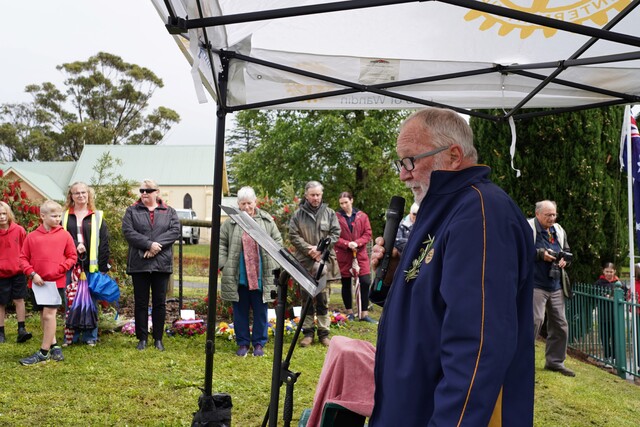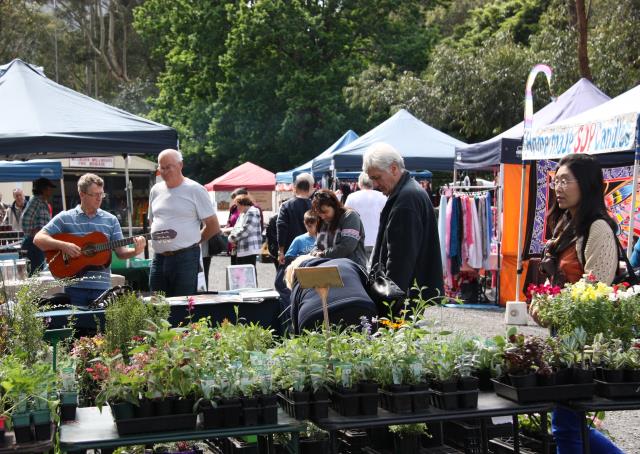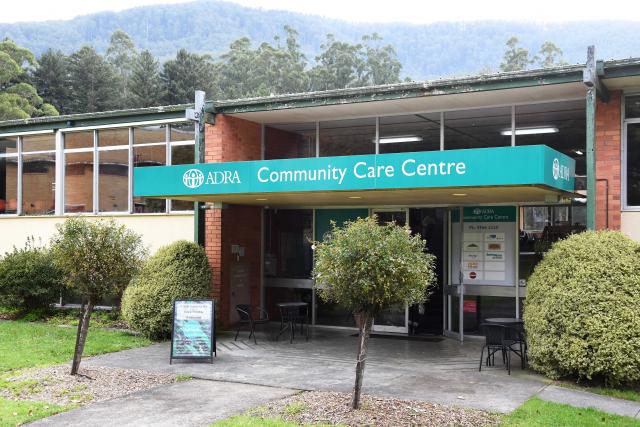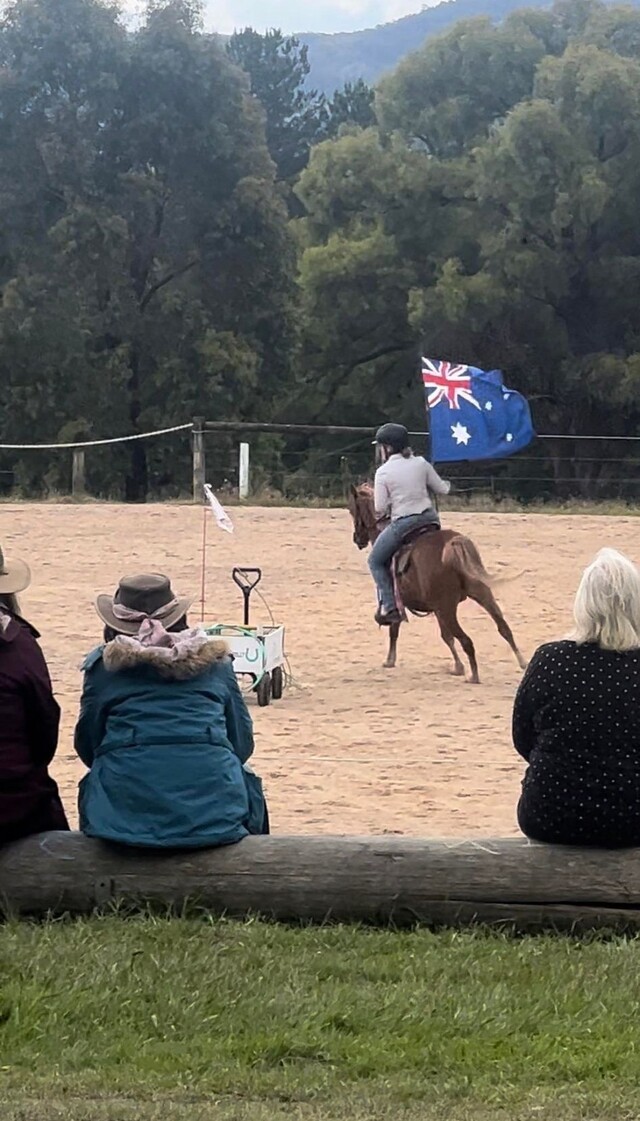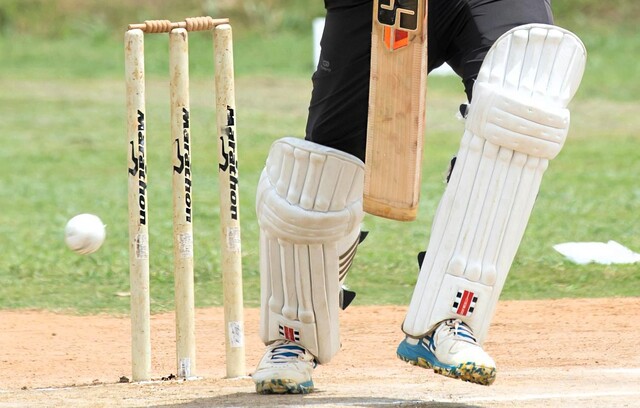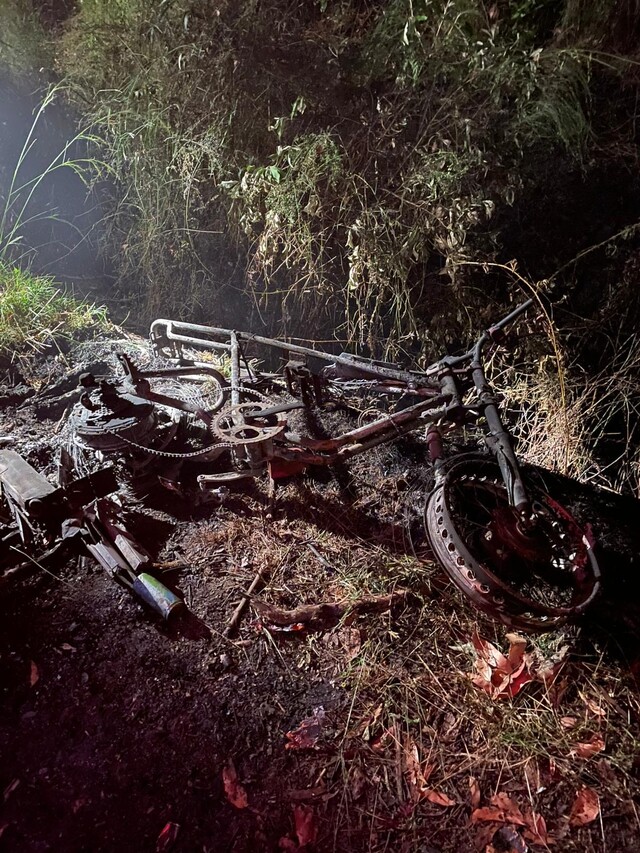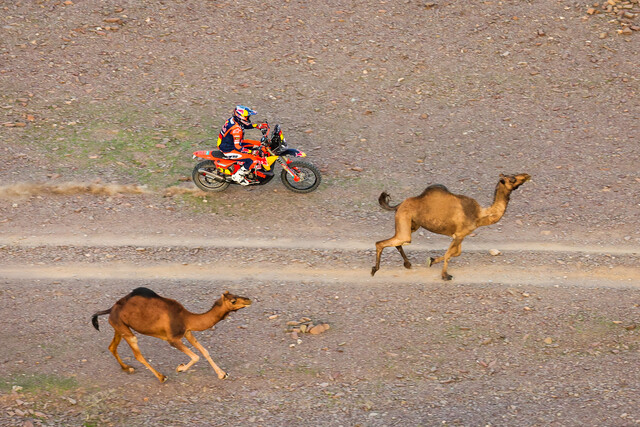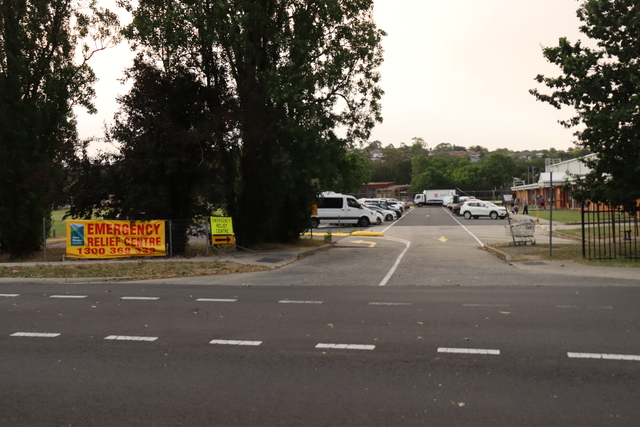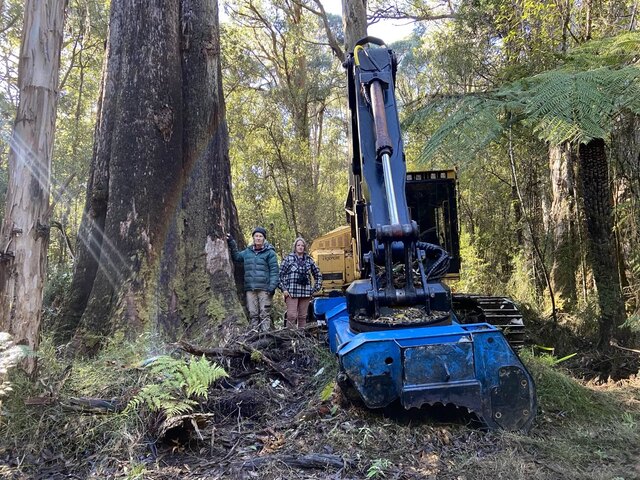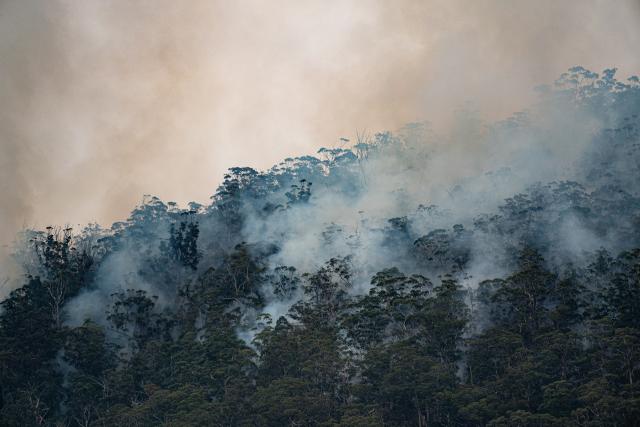Members of the community weathered the rain to gather at the Wandin North cenotaph on 11 November, where they commemorated Remembrance Day and acknowledged the sacrifice of those who served in war.
Though the morning had been sodden, the rain held off for the half hour service, as if the clouds themselves partook in the ceremony to offer reprieve from the rain.
The service was led by Rotary Club of Wandin foundation chair Brian Hodgson who reflected on what the sombre day meant for all those who served in war, no matter their alliance.
“This week commemorates a hundred years since the Royal Australian Army Signals Corps was established. There’s a lot to remember and to reflect on,” he said.
Veterans and other members of the community laid their wreaths at the cenotaph and paid their respects to the fallen.
Wandin Yallock Primary School students William and Clay read the poem, We Shall Keep the Faith, with dignity and honour as the crowd listened in silence.
They were shortly followed by Wandin North Primary School students Kaylie, Lewis, Matilda and Ryan who read The Ode to the Fallen.
The clock hit 11am, where only the sounds of birds and the wind could be heard as everyone observed the minute of silence.
Mr Hogdson invited people to offer a comment on what Remembrance Day meant to them, and a lady spoke of her husband’s uncle, Harold Manders.
“He was in the first World War at Gallipoli. He did return and he actually built the house that we live in today, which is just down the road here from the primary school at 105 Quayle Road,” she said.
It was an example of how those who served aren’t only valued for their efforts at war, but also for the contributions they had back at home.
Just over 103,000 Australian soldiers died in war according to the Australian War Memorial, and millions more died worldwide.
Mr Hodgson spoke of the role Indigenous Australians played in World War Two and acknowledged the troubled history of colonial Australia.
“In my first year of teaching I worked at Robinvale alongside many veterans awarded soldier settlement blocks at the state of World War Two.
“This may sound like it’s unrelated but in the 1940 census it was recorded that there were 50,000 adult Aboriginal people living in Australia.
He said despite regulations prohibiting Aboriginal people from serving in the war, 4000 of them fought for the country alongside other Australians.
“I thought it was very interesting, but what interested me just as much was the fact that on their return from the war not one of them was awarded a soldier settlement placement in Robinvale,” Mr Hogdson said.
Rotary Club of Wandin president Peter Johnson spoke of Remembrance Day’s origin, where it was originally called Armistice Day before World War Two.
“Around the world, some 10 million military personnel died in what was then called the Great War. Families and communities everywhere were affected by the enormous loss.
“Two decades after the First World War ended, the world was plunged into a second global conflict. No longer could Armistice Day remain a day only to remember the dead of the First World War.”
“When we pause at 11am on the 11th of November, we reflect on the price that Australia and countries around the world have paid through more than a century of war and conflict,” Mr Johnson said.

